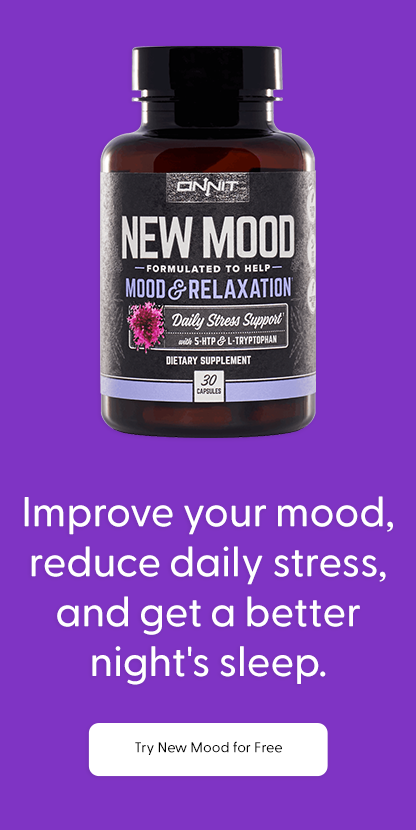Does Naturopathic Medicine Really Work? Your Naturopathy Questions Answered!
When it comes to your health, sometimes you want a second opinion or even a completely different approach to wellness. If you do any investigating, you may come across naturopathic medicine in your search. I know I have. When I was working on this article, I asked several people if they knew what a naturopathic doctor was and the answer was a “no” across the board. Maybe it’s because naturopathic medicine only came into existence in the United States just over 100 years ago. But as we learn more about the benefits of a holistic approach to health, interest and demand for naturopathic medicine continues to grow as people seek out different forms of treatment.
To learn more about what naturopathic medicine is, I interviewed Dr. Leah Gordon, a doctor of naturopathic and functional medicine and the founder of Tribe Medicine--an integrative and holistically-minded medical practice and online educational platform. Dr. Gordon is an avid speaker and utilizes Tribe Medicine’s online platform to teach and empower our TRIBE to live healthier lives for themselves, their children and future children, their communities, and our planet.
In practice, she offers a unique and personalized approach to helping her patients achieve their health goals. In addition to comprehensive intakes, she incorporates in-depth specialized laboratory testing to uncover the root-causes of suffering and utilizes holistic treatment plans to guide her patients toward optimal health.
Her own healing journey, paired with her rigorous medical training, has made her an expert in understanding the obstacles to healing in the areas of hormone balancing, in particular low libido. She often works in-depth on digestive, thyroid, and lifestyle health as these are often main root-causes to hormonal imbalances. She also loves supporting women and couples on their preconception journey helping them become optimal in preparation for a happy and healthy baby. Here’s what I asked Dr. Gordon and what I learned!
Can you explain what naturopathic medicine is and what led you to become a naturopathic doctor (ND)?
Naturopathic medicine is a specialty of medicine that has a few distinguishing principles. The first is that we see the person in front of us as a unique individual and a whole person. We don't just treat the skin or the gut or hormones. We recognize that everything is connected, it all influences one another, and we are trained to see you this way. The second principle is that we practice root-cause medicine. Rather than just addressing symptoms as most models of medicine do, we dig deeper with specialized intakes and cutting edge laboratory testing to uncover what is actually causing the symptoms you are experiencing.
The third principle is when we do use medicine to support your healing, we have many tools in our tool belts, from nutrition and lifestyle practices to herbs, homeopathy, physical medicine, targeted nutrients, as well as medications, if ever that is necessary. We see those tools like a staircase, with diet, lifestyle, and mindset on the lower steps, herbs and supplementation, physical medicine, and acupuncture in the middle, and medications and surgery near the top of the staircase. We always start at the bottom of the stairs and climb the steps only as we need to. Sometimes referring out for surgery or prescribing a medication is the best route, but the majority of the time, healing happens on the lower steps.
The fourth principle is that we believe the body has an innate ability to heal. A seed becomes a plant without us telling it to, a baby grows inside of a woman without her direction, and our body heals a cut on its own. There is an intelligence in all of us, in all of nature, and that intelligence is what allows us to heal. We simply remove the obstacles to this process and give the body what it needs.
The last principle, my personal favorite, is that we believe that education is some of the most powerful medicine and we love empowering you about how to live a healthy life, how your body and mind work, and how you can be the best version of yourself, bringing your body back into balance naturally.
What led you to becoming a naturopathic doctor?
I learned about naturopathic medicine when I was still in high school and it seemed like my dream profession. I already had a great love and respect for nature growing up in the more rural part of my hometown in Colorado, spending my days barefoot in the garden, riding horses, shooting archery, and exploring in the trees. When I went off to college, and was exposed to all of the pre-med students in my classes, I started to question if naturopathic medicine was really something I could study because no one had even heard of it.
My inquisitive mind led me to spend the next two years researching endlessly about all of the different forms of healthcare practitioners, degrees, and scopes of practice. I shadowed and interviewed traditional medical doctors, alternative and functional medical doctors, doctors of osteopathic medicine, nurse practitioners, physician assistants, physical therapists, chiropractors, acupuncturists, nutritionists, and any naturopathic doctor (ND) I could get in touch with. I wanted to find out which path was going to give me the tools to treat patients exactly as I wanted to treat them and which philosophy aligned with what I believed about health and medicine. Naturopathic medicine won.
What are the main differences between naturopathic medicine and conventional medicine?
I would say the main difference is our philosophy.
Much of conventional medicine today sees the body as a machine where our body is a combination of replaceable pumps and vessels with enzymes and biochemical processes to be manipulated with outside interventions in the form of pharmaceuticals. This is more of the reductionist model of medicine. They are more geared toward treating the symptoms, equivalent to figuring out the best way to turn off the fire alarm. This form of medicine is absolutely needed in certain situations. They thrive in acute and trauma care medicine.
Naturopathic medicine understands that everything is connected and you can’t just be an endocrinologist studying hormones without also being a gastroenterologist and understanding the gut. We aren’t specialized parts, we are all one intelligent, self-healing system. We have the tools to find the fire and put it out naturally rather than just unplugging the fire alarm. We know that depression is not a deficiency in Prozac. And while that medication may help some people in certain seasons of their life, we know there is more to depression than that.
Why should people see a naturopathic doctor?
Someone should see a naturopathic doctor if they have any desire to be healthy in any way. Naturopathic doctors practice prevention and we are trained to catch health imbalances way before they ever become a diagnosable disease. If you have a chronic symptom or illness, naturopathic doctors are trained to find the root cause and support you in moving back into balance and optimal health.
If you are frustrated by not receiving answers from conventional medicine or have been diagnosed with syndrome-type diseases such as IBS, depression, hormonal imbalances, fatigue, etc. And my personal passion is, I feel all women and men should work with an ND prior to becoming pregnant so they are their most optimal selves and they learn how to bring a healthy lifestyle into their pregnancy and their family. This is how we will heal our Tribe. Start at the root or the seed of Tribe Building.
Regarding treatment plans, can you explain how a naturopathic doctor chooses one? How often do they prescribe medication vs. natural herbs and supplements?
Every naturopathic doctor is different. We are not all the same and I can’t speak for all of my colleagues.
In my practice, we are very individualized and we hear a complete patient case looking at their entire life from birth to the present moment and highlight any areas where there may be an explanation for the root-cause. We then do specialized testing to help answer that question.
Based on that analysis, we recommend our treatment plan which often consists of foundational work first: diet, exercise, detoxing, choosing different products, etc. After labs come back, we suggest targeted nutrition, supplements, herbs, movement, etc. based on the person in front of us. I only personally recommend medications very sparingly, for instance if someone has a urinary tract infection that is not better after one day of an herbal protocol, I would prescribe an antibiotic. Other NDs may practice differently than me, but that is what I do.
Do you believe there are any supplements that everyone should take or does it vary person to person?
There really isn’t any one size fits all approach to health, however the nutrients I see the lowest in almost 90% of patients is Vitamin D3 and Omega 3 fats.
Is there one particular health problem that people mainly see a naturopathic doctor for or does it widely vary?
The health conditions vary widely from hormonal imbalances, infertility, pregnancy preparation, fatigue, digestive issues, mood issues, skin issues, cardiovascular or heart health...honestly anything you can think of, ND’s address. Not all ND’s address all conditions, we have specialists in our field as well, but as a collective we see everything.
Do you specialize in any areas? What made you become so passionate about those areas?
I specialize in women’s health, natural hormonal balancing, painful periods, low sex drive, preconception care, and digestive issues. My passion for these all came from my own personal experience with all of them and my deep passion for healing our Tribe by reaching women and men before they become pregnant so we can positively impact our planet and our collective Tribe. The conditions that get women in the door before getting pregnant are what I focus on.
What has surprised you the most about being a naturopathic doctor?
I would say the lack of understanding in our culture and in the current medical community around health, how disease and imbalance actually develop, and how to treat and support patients in a way that actually works with the intelligence of the body. It makes me grateful for professionals like those in naturopathic medicine, but we have a lot of work to do in educating and empowering people and the medical institution.
How has being a naturopathic doctor shaped your belief system around overall wellness?
It has transformed it in every way.
A lot of people still don't know about naturopathic medicine, do you see this changing any time soon? What has changed the most for your practice over the years?
I do see this changing because of social media. Before online education and awareness people really didn’t know about naturopathic medicine, because it isn’t talked about in the mainstream outlets of information. I think it is a grass-roots movement, but people are hungry for something different and I think many people can get behind the philosophy we have about health.
If someone does want to see a naturopathic doctor, what's the best way about finding one?
So there are licensed naturopathic doctors/physicians and there are naturopaths. They are different. Naturopathic doctors/physicians went to school, similarly to an MD, but trained in a different philosophy. There are thousands of naturopaths or holistic healthcare practitioners, and although they may help people tremendously in their own way, they do not have the same rigorous training as NDs. So when you Google, be aware of that. I would go to https://naturopathic.org/ and click on the “Find an ND” section or ask around or go on Instagram. But always ask if they are a licensed naturopathic doctor/physician if that is what you are looking for.
More Article You Might Like















